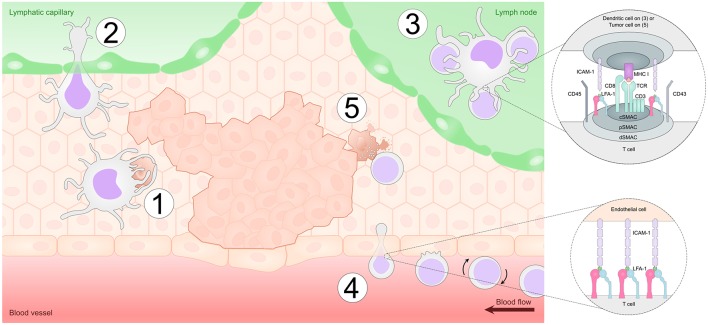Figure 3.
Integrins play a vital role in anti-tumor immunity. Dendritic cells (DCs) take up tumor antigens in the tumor microenvironment by phagocytosing dying tumor cells in a process mediated by adhesion molecules such as αvβ5 integrins (Step 1). DCs then enter the lymphatic vessels partly in an LFA-1/ICAM-1-dependent manner and migrate to the draining lymph node (Step 2). In the lymph node, DCs form an immunological synapse with CD8+ T cells in order to present the tumor antigen. LFA-1-ICAM interactions mediate adhesion in the immunological synapse and also provide an additional co-stimulatory signal to the T cells (Step 3). Once activated, T cells travel via the blood stream and enter the tumor site by interacting with adhesion molecules including E-selectin, ICAMs and VCAM-1 on endothelial cells in a process termed leukocyte adhesion cascade. This process is regulated by sequential expression of selectins (L-selectin) and integrins (LFA-1, VLA-4) on the migrating T cell (Step 4). Finally, after reaching the tumor microenvironment, CD8+ T cells form an immunological synapse with tumor cells and kill the malignant cells via the release of cytotoxic granules (Step 5).

